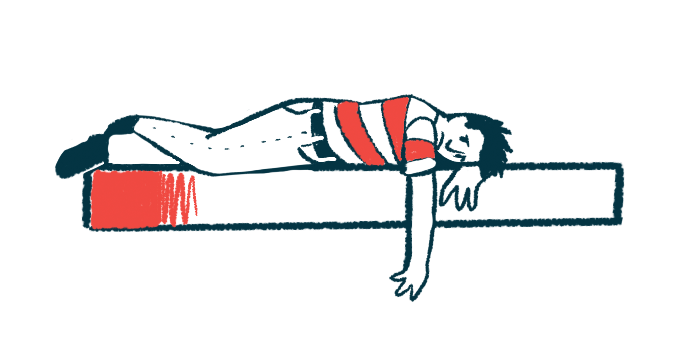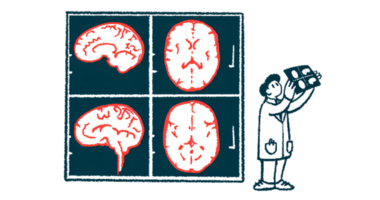Brain Circuit Associated With MS-related Depression Identified
Findings suggest transcranial magnetic stimulation might be effective treatment

Researchers have identified specific areas of brain damage associated with depression in multiple sclerosis (MS), but not with other symptoms of the disease.
The findings could pave the way toward new treatments for MS-related depression that work to stimulate these regions.
“The more we know about the connectivity of lesions that cause symptoms, the better our ability to target an ideal stimulation site for those symptoms,” said Shan Siddiqi, MD, director of psychiatric neuromodulation research at Brigham and Women’s Center for Brain Circuit Therapeutics, in a press release from the Brigham and Women’s Hospital.
The study, “Lesion network localization of depression in multiple sclerosis,” was published in Nature Mental Health.
In MS, inflammation damages the myelin sheath, a fatty covering around nerve fibers that helps them send electrical signals. As a result, nerve cells don’t function properly, giving rise to disease symptoms.
In some cases, the connection between specific nerve damage and resulting symptoms is fairly straightforward. For example, damage in the nerves that connect the eyes to the brain can cause vision problems. Specific lesion locations that lead up to other symptoms are less well known, however.
Depression — persistent low mood and energy — is one of the most common symptoms of MS. Studies have suggested that MS-related depression is a direct result of changes in brain activity, but it’s been difficult to identify the particular parts of the brain where damage can cause depression.
“If we want to find specific locations of brain damage that cause specific symptoms, it sometimes works, but only for simpler brain functions like vision or movement. When it comes [to] functions like those associated with depression, it’s not that simple,” Siddiqi said.
Part of the issue is that brain regions don’t act independently. Individual regions are interconnected with each other, working in concert to form neural circuits that give rise to higher brain functions.
Assessing brain lesion, depression circuit overlap
In a previous study of people with stroke or traumatic brain injury, researchers found a link between damage to a particular brain circuit and symptoms of depression. Here, the team investigated whether the same brain circuit showed a connection with MS-related depression.
“When a patient has lesions all over the brain, we used to assume they were unrelated to depression, because they seemed so disconnected. But with lesion network mapping (LNM), we can see even when lesions don’t directly overlap with each other, they may overlap with the same circuit,” Siddiqi said.
The scientists analyzed brain imaging and depression symptom severity data for 281 people with MS. Using the imaging data, the team assessed how much lesions (areas of MS-related damage) overlapped with parts of the a priori (hypothesized) depression circuit.
Patients whose lesions were connected to the previously discovered depression circuit had more severe depression, regardless of age, sex, disability level, and total lesion volume, results showed. Damage to this circuit showed a stronger link with depression than with other symptoms or with overall disability measures.
The researchers also performed statistical tests to look for disrupted brain circuits that showed associations with more severe depression. The results of these analyses were very similar to the original a priori circuit.
These findings, together with earlier data showing a link between this circuit and depression in other conditions, support the notion of a cause and effect relationship between damage to the neural circuit and MS depression.
They also imply that treatment strategies targeting these brain regions — such as transcranial magnetic stimulation (TMS), which has treated depression related to stroke and brain injury — might be effective in MS.
“Future clinical trials should thus specifically investigate the antidepressant efficacy of TMS in people with MS, which has not yet been thoroughly studied,” the researchers wrote.
“We’ve already shown the success of targeting our a priori depression circuit in other patients. Now that we’ve shown that the circuit can be applied to MS depression, we should be able to find a treatment target for these patients, too,” Siddiqi said.
The study has several limitations, the researchers noted. For example, they only used one standardized score to assess depression severity and didn’t account for antidepressant use. More research to validate their results and explore potential treatment applications was needed, they said.







